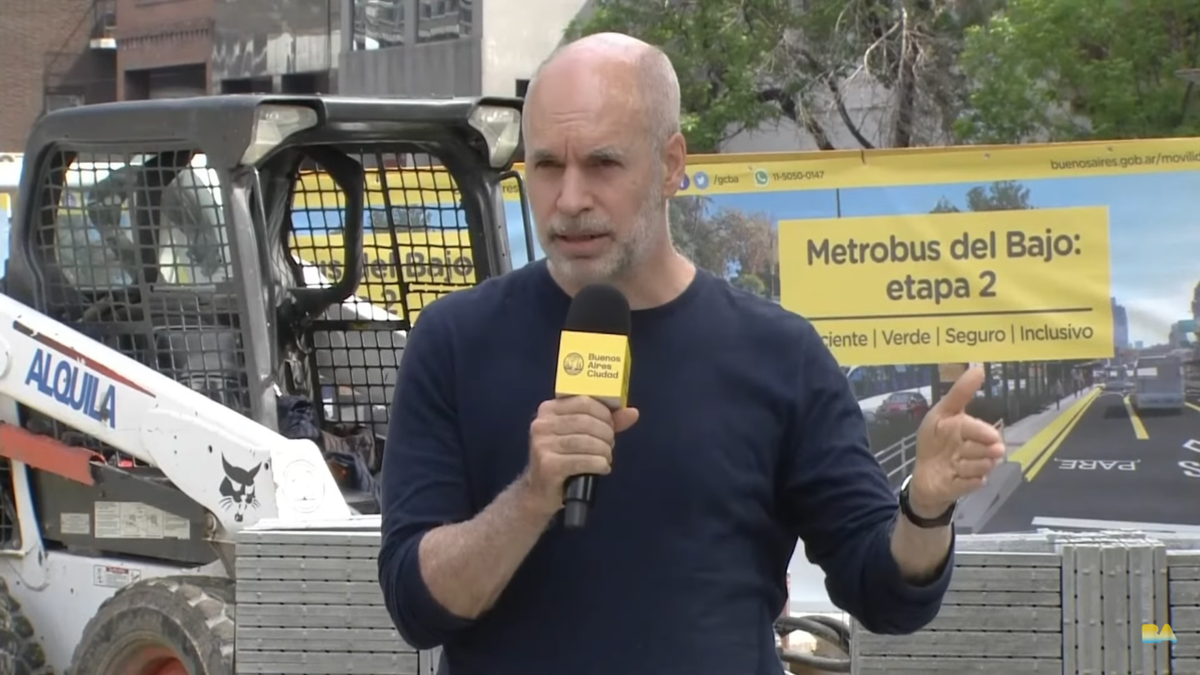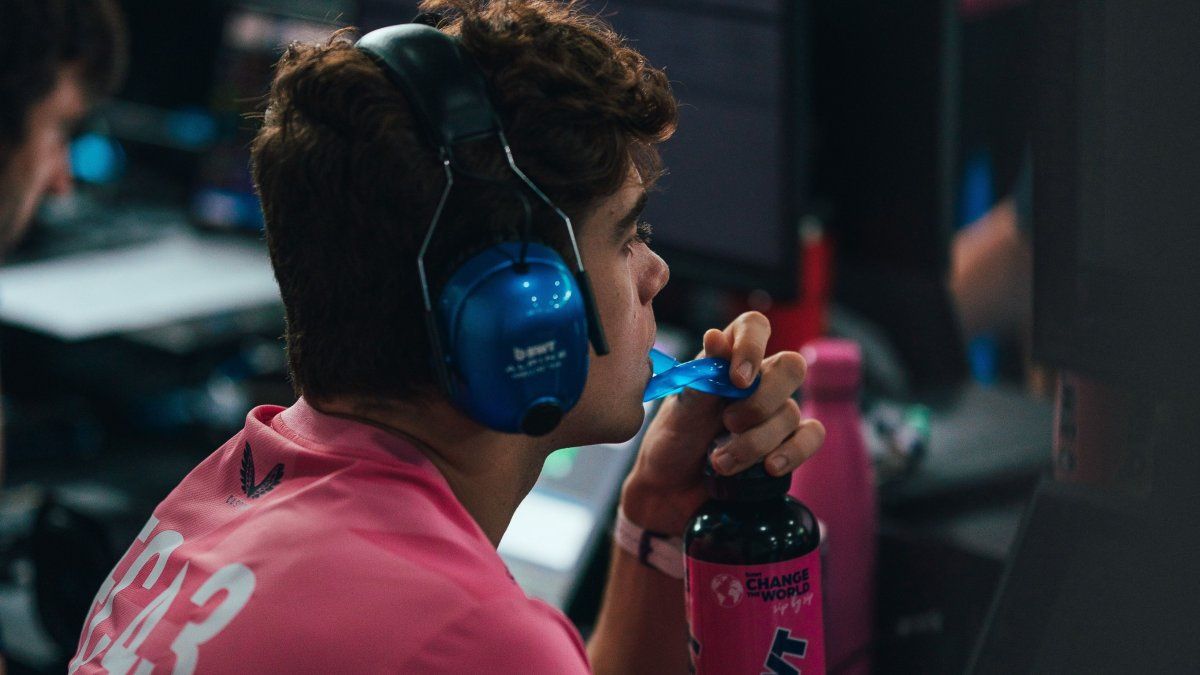There is another strength in this political experience that we still need to understand: the change of command from Mauricio Macri to Horacio Rodríguez Larreta was so swift and fierce that it surprised analysts and the political class itself. It seemed like a decision from a shareholders’ meeting with a CEO who didn’t do well: “Gather your belongings and leave the building.” Incidentally, the fired had founded the company.
If the PRO supports this quick-change feature, it has an advantage over a radicalism that could never overcome a Raúl Alfonsín who in life blocked -and in death continues to do so- and over a Peronism where the votes point in only one direction: Cristina Kirchner.
New leader
The surname Rodríguez Larreta sinks along with the roots of the country. We can find it in April 1890 as one of the signatures of the founding act of the Civic Union or in June 1943 when high society ladies visited the wife of the new dictator Pedro Ramírez. Crucially, we will also find him as a leader of developmentalism in the 1970s.
The current Head of Government is an economist from the UBA with a postgraduate degree from Harvard and has extensive experience in public administration. Get to know first-hand the two great savings banks of the National State: ANSES and PAMI. In elections he has had to lose, be displaced as a candidate and live politically in the shadow of Mauricio Macri. By all sources he is a workaholic. In short, an outstanding resume for a candidate for President.
But if we consider Rivadavia’s chair as the electric chair that it really is, any candidate for the presidency must arrive with equipment and with a plan. The Head of Government is as master of his silences as the Vice President of the Nation. That is why we still do not know the opinion of Horacio Rodríguez Larreta about what went wrong in the government of Mauricio Macri. His Minister of Economy would be the last of the former president, Hernán Lacunza, who was forced by the defeat of 2019 to be the one who defaulted debt in pesos and also to be the one who reinstalled the stocks. Until now, Esteban Rafele in letter P and Andrés Fidanza in Diario.Ar they have reconstructed a draft of the economic program of the PRO. From Rafele’s note we know that Larreta’s team rejects dollarization and that Larreta defines himself as a “developmentalist”. We will take the strategy of defining himself as “developmentalist” merely as another campaign slogan since it was used in that sense for decades and former President Macri abused the label.
The rejection of dollarization, on the other hand, does matter because inflation has been on the rise since 2004, with brief falls. The trend is clear: upward. Here comes a forecast attributed to Hernán Lacunza: the current government will not be able to avoid the megadevaluation and perhaps not the default either. I mean, Peronism would live its own 2001. According to this line of reasoning, the PRO would receive state spending already liquefied and a society resigned to accepting surgery without anesthesia.
Let’s stop at this point. It is key to remember that there are more governments that manage to pass on the great crisis to the next one than those that explode in their hands. The Rodrigazo of June 1975 is the only example of a Peronist government to which the bomb exploded during his mandate. This situation was related to the fact that an attempt was made to sustain the unsustainable at least until the death of Juan Perón and that the great crisis did not remain in his historical credit, but in that of his successor. There were no attempts to defuse little by little or the largest fiscal deficit in memory or to accommodate relative prices, because the true end of the mandate was the death of the leader. We can say that that government also managed to pass the bomb.
It is not serious then to start from a situation in which the PC is spitting blood. It is a microclimatic reasoning. And that microclimate – which also goes so far as to state that “the PJ will make fraud in November” or that “Peronism is dying” – is harmless in LN + panelists but it is not so for a potential president and even less so for an economy minister in the shadows. Most likely, the next administration will see an even messier macroeconomy and an even angrier society, not a more docile one.
The relationship with big business is another fundamental element. In the previous PRO management, it ended badly with the Notebooks cause. In other words, trying to kill two birds with one stone: Kirchnerism and the sucking business. There is a structural data there. The sociologist Gabriel Vommaro, author of two books on the PRO, affirms that this is “a center-right party that has difficulties in incorporating big business into its ranks.” Let’s not forget that the metaphor to refer to those interests, “the Red Circle”, was coined by Mauricio Macri. During his administration, the displeasure with the owners of Argentina accumulated as a result of the fact that, for example, Even when these businessmen en masse entered the largest money laundering on the planet in 2016 (110,000 million dollars), they did not repatriate practically any of those funds.
This diversified oligarchy, which does not use to adhere to any political space, was already described by Jorge Federico Sábato. Premonitory, after Sábato published in 1979 The ruling class in modern Argentina, that sector obtained its greatest triumphs: the Armed Forces nationalized its debt in 1981-82 (that of the middle class was, on the contrary, indexed with Circular 1050), the UCR legitimized and paid that debt in the 80s, the PJ sold them cheaply the state companies that later they sold expensive to foreign capital, also obtained from the PJ asymmetric pesification in 2002 (transfer of income from small and medium savers to indebted corporations).
The common context of these events was the political and economic disorder of the moment, in the first case even with a war. In short, a troubled river. And as we can all appreciate, the river, once again, is churning. Then, the diagnosis of what this business community wants must be rigorous: wants to appropriate state assets (ANSES shares for example), wants to transfer its liabilities to the State (severance pay for long-term employees is one of several possibilities) and wants to eliminate regulations to their dominant positions (for example, telecommunications as a public service).
What’s more, concentrated entrepreneurs reject full or partial dollarization not because of the sensible arguments of a serious country, but precisely the opposite: That measure would eliminate the flexibility and some of the instability that you need to continue to handle yourself like a fish in water.
Going to war against them is useless. The best path is the one that Roberto Lavagna traveled in 2002 when he politely but flatly refused to apply for exchange insurance for private foreign debt: “No, no and no.” Naivety at this point will pay dearly. The Armed Forces paid it dearly, which was squeezed like a lemon, Raúl Alfonsín paid it dearly when – for exchange insurance – he spent it canceling the debt of Amalita and Franco Macri and Carlos Menem paid it dearly with the Bunge y Born Plan of July 1989 tailor-made for the contracting country and ended in a second hyperinflation in February 1990.
But the central point of the Larreta Plan has already been verbalized: an agreement of superstructures, a pact of two thirds of the leadership. Thus, progress could be made with the deindexation of pensions or with cutting the unacceptable deficit of Aerolineas Argentinas.
It is not that simple, because, as the sociologist Juan Carlos Torre affirms, Argentine society not only “lacks patience” but, unlike other Latin American societies, “has veto power.” How do you exercise that veto power? Breaking everything as in the Cordobazo of 1969 or simply voting against, as he usually does since 1983.
The limits of the superstructural agreement are obvious. So the path to achieving economic transformation is even more labyrinthine Argentine.
political analyst




